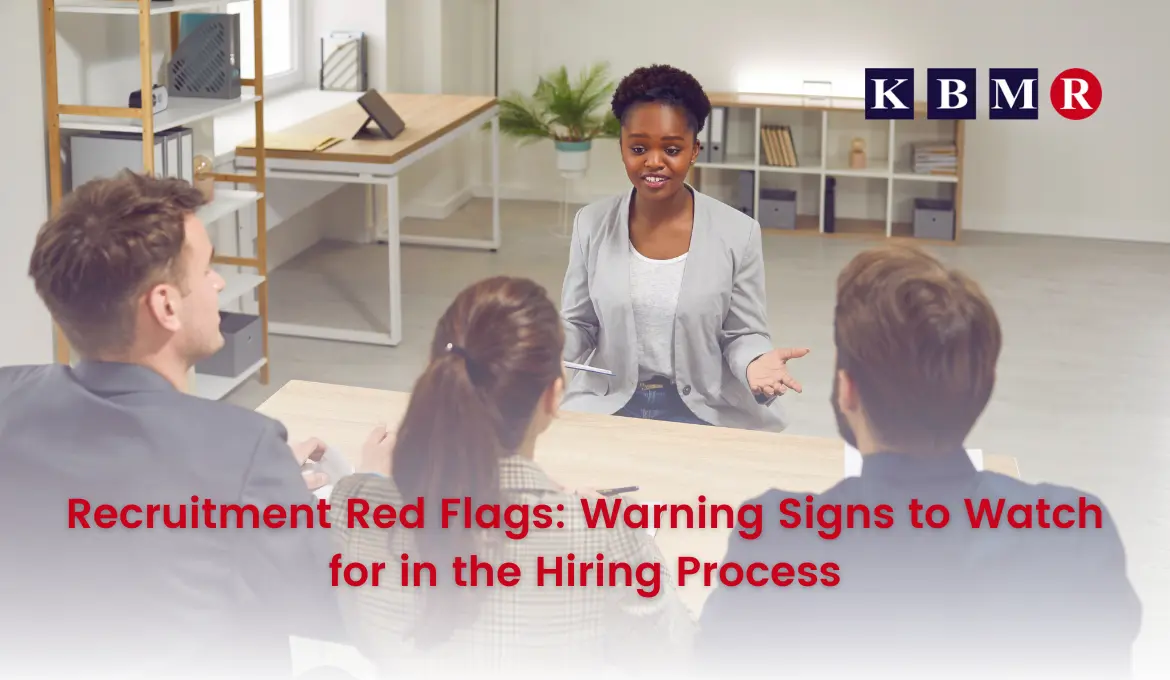Getting the right people on board is crucial for any company's success. But finding the perfect person for the job can be tricky. That's why the hiring team must look for signs of trouble.
This blog will discuss some common warning signs when hiring new people.
Lack of Preparation
One of the first red flags is a candidate's lack of preparation for the interview. Candidates who haven't researched the company, role, or industry may not be genuinely interested or committed to the opportunity.
Additionally, a lack of preparation may signal poor attention to detail and a lack of professionalism.
Inconsistent Employment History
A candidate's employment history can provide valuable insights into their work ethic, stability, and career progression. Red flags to watch for include frequent job changes, unexplained employment gaps, or a pattern of short-term positions.
While some degree of movement is joint in today's job market, excessive job hopping or inconsistencies in employment history may indicate a lack of commitment or reliability.
Negative Attitude or Behavior
Pay attention to a candidate's attitude and demeanour during the interview process. Negative attitudes, disrespectful behaviour towards interviewers or other staff members, or an overall lack of enthusiasm may be warning signs of potential issues with workplace culture fit or interpersonal skills.
Similarly, candidates who speak negatively about their previous employers or colleagues may raise concerns about their professionalism and ability to work well with others.
Overemphasis on Compensation
While compensation is essential to job satisfaction, candidates who overly emphasize salary, benefits, or perks during the interview process may raise red flags.
Although it's natural for candidates to inquire about compensation and benefits, an excessive focus on these aspects may indicate a need for more alignment with the company's values, culture, or long-term goals.
Lack of Accountability or Ownership
Listen to how candidates discuss their past experiences and responsibilities. Red flags include a reluctance to take ownership of mistakes, blame-shifting, or a lack of accountability for outcomes.
Candidates who demonstrate a pattern of avoiding responsibility or accountability may struggle to thrive in a collaborative and results-driven work environment.
Poor Communication Skills
Proper communication is critical for success in almost any role. Watch for red flags such as unclear or disorganized communication, difficulty articulating thoughts or ideas, or a lack of active listening during the interview.
Candidates who need help communicating effectively may need help collaborating with colleagues, conveying information to stakeholders, or resolving conflicts in the workplace.
Inadequate Research or Understanding
Candidates who need to gain knowledge of the company, its products or services, or the industry may raise red flags during the interview process.
While expecting candidates to have in-depth knowledge of every aspect of the organization is unrealistic, they should demonstrate a basic understanding of the company's mission, values, and industry landscape.
A lack of research or experience may indicate a limited interest or commitment to the role.
Unrealistic Expectations
Be wary of candidates with unrealistic expectations about the role, career advancement opportunities, or the organization's culture. While it's essential for candidates to have ambitions and goals, unrealistic expectations may indicate disconnect between the candidate's aspirations and the realities of the position or organization.
Additionally, candidates solely focused on rapid career advancement or promotion may need to be more committed to the role or willing to invest the time and effort required to succeed.
Conclusion
Spotting red flags during the hiring process is super important. It helps companies make intelligent decisions and steer clear of problems later on. Paying attention to warning signs like being unprepared, having a choppy job history, showing negativity, focusing too much on money, lacking responsibility, having lousy communication skills, not doing enough research, or having unrealistic expectations can help recruiters and hiring managers avoid risks.
Instead, they can choose candidates who fit the job well and the company's vibe. No candidate is perfect, but keeping an eye out for red flags helps build solid teams and sets the stage for success and growth in the long run.





